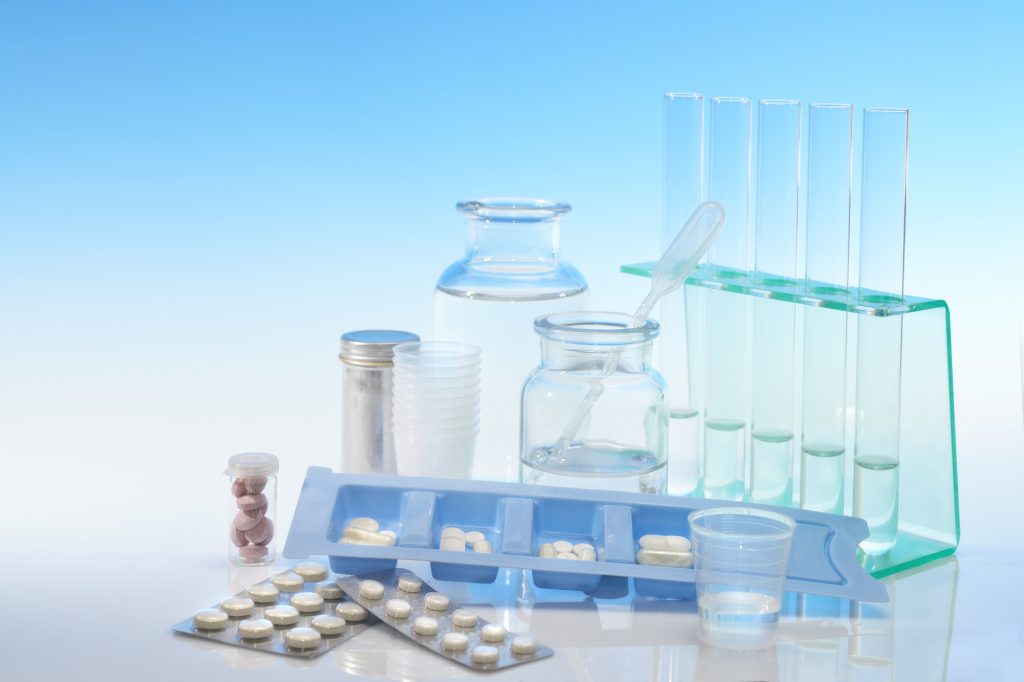Analytical Method Development: Best Practices for Successful Filings – and Beyond


 Delay Method Development at Your Own Peril!
Delay Method Development at Your Own Peril!
Small and virtual pharma companies mindful of constrained budgets often defer analytical method development until later stages. But delaying analytical process development from pre-clinical to IND or NDA stages bears its own costs…and they can be exorbitant.
Need to Develop Analytical Methods? Start Early.
Analytical methods are critical to an NDA-ready process and commercial supplies you can trust. An early focus on analytical development beyond just the release methods enable data-driven process development, which can pay dividends as you progress through various clinical and commercial stages.
The Key is Collaboration.
Process chemistry must work closely with analytical chemistry to develop a scalable process with acceptable impurity limits. Investing early in analytical can build better understanding of why the chemistry works during process development. Understanding “why” will only improve decision making each step of the way.
Later-Stage Analytical Method Development Requires More Effort – and Costs More.
As drug development progresses from early pre-clinical work, the regulatory burden grows and so do analytical validation requirements. Simply put, the later the stage, the more data that is needed. Justifying changes also becomes a much more involved effort – and is often prohibitive due to both cost considerations and the timeline impact. Early analytical investments mitigate the risk of unexpected findings later in development that can leave you choosing between costly delays or commercializing a suboptimum process.
Here are a few key points to remember:
- Release Methods Are Important, But There is More.
Too often, drug sponsors almost exclusively focus on release methods at the early stages of pharmaceutical development. That is already too late since the process has been developed and the product is being produced. Collecting data during process development using well-developed in-process controls lets you understand what is happening in the reactor.Analytical data is what enables project teams to identify improvements, diagnose issues, anticipate potential problems, and act before problems occur. Making new impurities in cGMP campaigns can substantially slow down development and manufacturing. New impurities may need to be identified and qualified, requiring tox studies. Early analytical development to develop capable in-process control tests can better manage against the risk of new impurities and consequently the risk of rework, reprocessing, or impurity qualification – all of which can add cost, impact yields, and delay projects. - Understand Your Impurities and Select Isolation Steps.
The sooner you understand your impurities, the better you can understand how to control them. One particular approach used at Regis is to ‘chalk talk’ impurity formation, bringing together analytical, process chemistry and engineering to develop impurity control strategies.Among the sources of impurities to evaluate are raw materials, byproducts, related substances, degradation products, equipment, processing aids, etc. Once an impurity has been identified – whether organic, inorganic, elemental or due to residual solvents – its toxicity must be determined. Regulators (e.g., the FDA) will require that impurities above certain thresholds be identified and tracked. (An exception would be mutagenic or genotoxic impurities, which must be reported at any level.)Formation, fate and removal of impurities which are formed during chemical syntheses should be investigated in a “fate and purge” study. This will help determine if the impurity is conserved, transformed, or removed during a subsequent processing step.Critical Quality Attributes (CQA) of the drug substance and all isolated intermediates need to be identified, justified, and included in the specifications. It is critical that reasonable specifications are established based on the capabilities of the process to avoid specification boundaries on the edge of control. Managing impurities early in development is much easier since there is freedom to operate. Later in development, changes will be more difficult – and potentially costly. As the process or the starting materials are altered or changed, it is important to assess how this impacts the quality and shelf life of the product which may require substantial rework in process and analytical development.
Managing impurities early in development is much easier since there is freedom to operate. Later in development, changes will be more difficult – and potentially costly. As the process or the starting materials are altered or changed, it is important to assess how this impacts the quality and shelf life of the product which may require substantial rework in process and analytical development. - Understand API Formulations & Leverage Solid State Chemistry.
Solid form isolation, which is used to identify a stable and isolable crystalline form at the final API step, is another important aspect of drug development which should be undertaken early on in development. Selecting the appropriate API solid form early can improve pharmacokinetic profiles and ease the transition from the bench to manufacturing scale. Collecting the appropriate data early in development helps:
- enable data-driven decisions for phasing solid form development efforts.
- offer insights to help develop Intellectual Property strategies.
You Can Avoid the ‘Pennywise and Pound Foolish’ Conundrum.
Drug development is capital-intensive, and companies often need to adhere to strict budgets. The downside of such an approach is that it is often ‘penny wise and pound foolish.’ While a product may have met specifications in previous campaigns, processes could unknowingly be running on the edge of control. Subtle changes in manufacturing could result in dramatically different results for yield and quality. Spending more time upfront understanding impurity formation and developing strategies to control those impurities may incrementally increase development costs but will also exponentially help manage the risk of costly rework and reprocessing in production.
 Case Study: On the Edge of Control
Case Study: On the Edge of Control
One customer transferred in a late-stage API development and validation project. Unfortunately, they had not invested much in impurities, and the process was considered locked. This presented numerous challenges to produce batches meeting the impurity profiles submitted in their registration batches.
Their submission data was based on theoretical impurities and limited lot history from batches purified using intensive separations. Consequently, the FDA imposed strict specifications for unknown related substances for intermediates and in-process control tests (IPCs).
Once Regis elucidated the structure and understood the purge and fate of relevant process-related impurities, Regis learned the process was operating on the edge of control. This meant that additional controls had to be built into manufacturing. Otherwise, it was a matter of time before a batch failure.
While the project was successfully completed and the drug was approved, the results were avoidable. On the manufacturing front, Regis was left with a cumbersome process – and the customer was left with unnecessarily long lead times and an expensive product.
Conclusion
Lessons learned… Analytical and process chemistry development are inextricably linked. Great analytical enables great process chemistry which will deliver reproducible, scalable, cost-effective manufacturing.
Contact Regis to learn how upfront analytical method design and impurity identification can accelerate your drug development project.